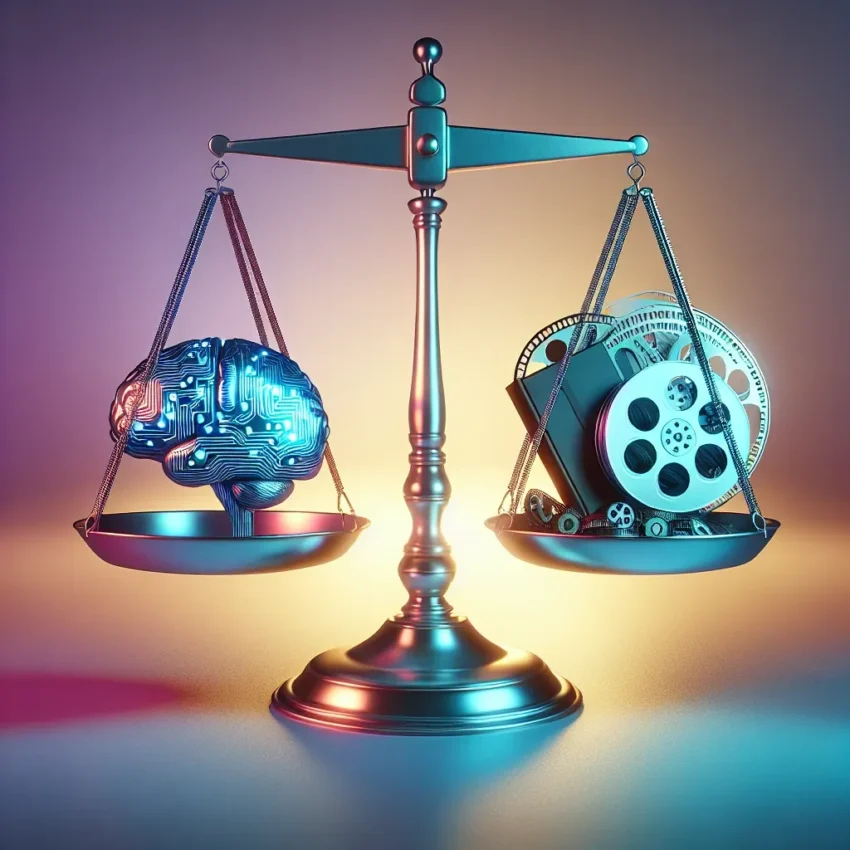Understanding AI Video Copyright Risks
As Artificial Intelligence (AI) continues to shape the landscape of digital content creation, the challenge of copyright risks associated with AI-generated videos has become increasingly significant. These foundational problems not only raise legal questions but also ethical concerns that can affect creators, consumers, and industries alike.
The Rise of AI in Video Creation
Over the past decade, AI technologies have advanced dramatically, allowing for the automation of video production processes. From sophisticated editing software to AI-driven script generation, the capabilities are vast. However, with these advancements come profound implications regarding copyright.
The Legal Landscape
The legal frameworks surrounding copyright have struggled to keep pace with technological advancements. Traditional copyright law is predicated on human authorship. The question arises: who owns the rights to AI-generated content? Is it the software developer, the user, or the AI itself? This ambiguity creates foundational problems that need resolution.
Key Legal Considerations
- Authorship: Determining who is considered the author of an AI-generated video is complex. The Copyright Office has largely maintained that copyright protection applies only to works created by human authors.
- Licensing Issues: If an AI tool uses pre-existing copyrighted materials to create new content, the risk of infringement becomes significant.
- Liability: In cases of copyright infringement, pinpointing liability can be challenging when multiple parties are involved.
Ethical Implications
Beyond legal challenges, the use of AI in video production raises ethical questions. The potential for bias in AI algorithms and the implications of creating deepfakes can have damaging consequences.
Deepfakes and Misrepresentation
Deepfake technology allows users to create hyper-realistic videos that can misrepresent individuals and events. This poses a risk not only to personal reputations but also to public trust in media.
Addressing Ethical Concerns
- Transparency: Developers of AI technologies should prioritize transparency in how their algorithms function and what data is used.
- Accountability: Establishing clear accountability measures is essential to prevent misuse of AI-generated content.
Real-World Examples
Several high-profile cases illustrate the risks associated with AI video copyright issues. For instance, a popular social media platform faced backlash for allowing users to create and share deepfake videos without sufficient oversight. This incident sparked conversations about the need for stricter regulations and ethical guidelines.
Future Predictions
As the use of AI in video production continues to grow, we can expect legal and ethical challenges to evolve. Legislators may need to establish new frameworks that accommodate the rapidly changing landscape of digital content creation.
Proposed Solutions
To mitigate the foundational problems arising from AI video copyright risks, several solutions can be considered:
- Updating Copyright Laws: Legal systems must adapt to include provisions for AI-generated content.
- Establishing Clear Guidelines: Developers and industry experts should collaborate to create ethical guidelines for AI use in video production.
- Consumer Education: Educating users about the implications of AI-generated content can help foster a more informed audience.
Conclusion
As we navigate the complexities of AI video copyright risks, it is crucial to address the foundational problems that arise from this emerging technology. By fostering discussions around legal, ethical, and practical solutions, we can shape a future where innovation and creativity coexist with respect for intellectual property rights.

